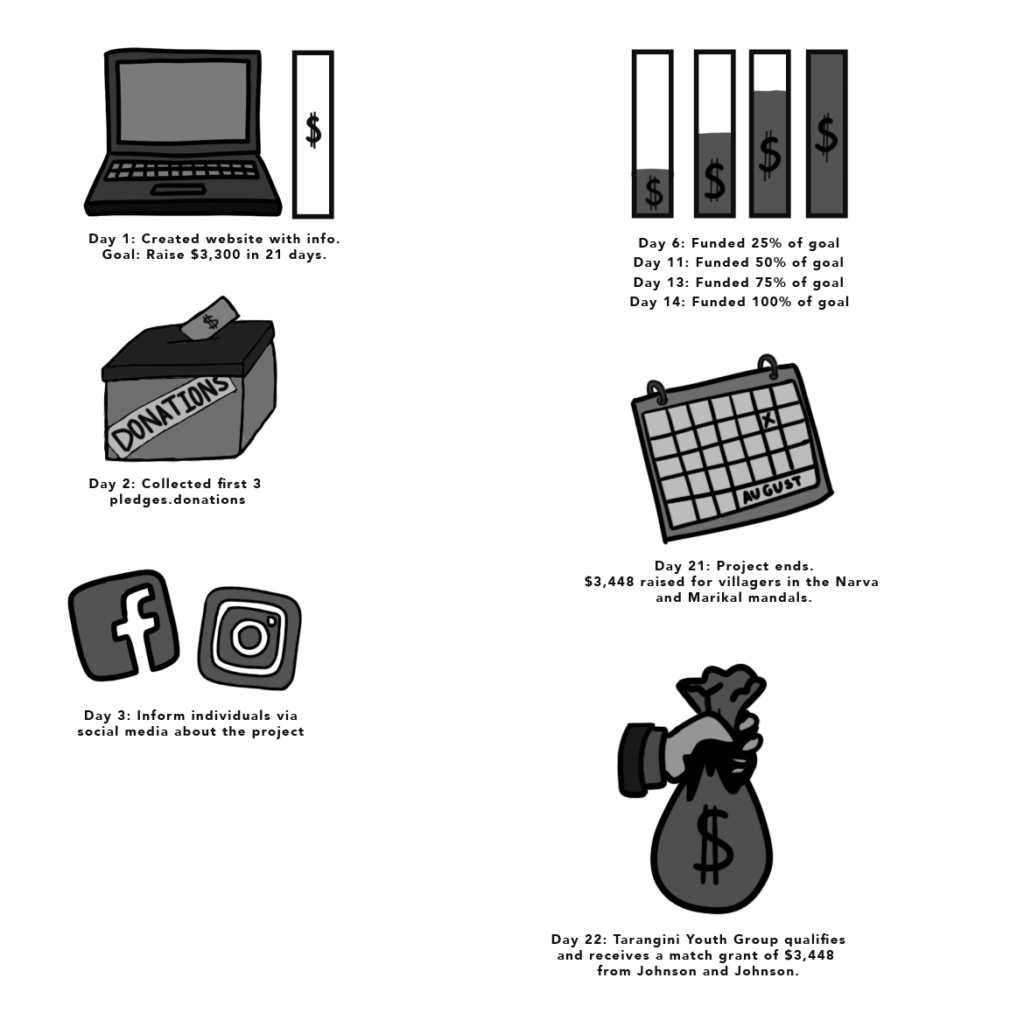MHS JUNIOR to fundraise to increase access to healthcare in RURAL INDIA
Abby Waechter | Staff Writer

Living miles away from the nearest hospital during a pandemic, rural villagers in India have limited access to crucial medical care. Students 8,300 miles away at Mason High School, however, are doing their part to help despite the distance.
Juniors Vamshi Singidi, Vignesh Gogineli, Vida Vedati, Niraj Koneru, and Rajeev Kunaparaju — creators of the Tarangini Youth Group — had just 21 days to raise $3,330 for a technology platform called Telangana Information Technology Association (TITA) in order to qualify for a match grant from biomedical company Johnson & Johnson. TITA, a non-profit and non-governmental organization, developed an app called T-Consult which would allow for rural villages in India to better connect their villagers to healthcare workers during the pandemic.
Indian states are divided into districts called mandals. Each mandal contains up to 30 villages with just one designated health care worker per mandal. By raising money for the cause, the group was able to provide the healthcare workers in one mandal with training and access to TITA’s app.
Through the Caring Crowd Platform sponsored by Johnson & Johnson, however, if the boys reached their goal in 21 days, a match grant would be donated to their cause. Co-project organizer Vamshi Singidi said that the timeframe was intimidating at first, but the issue of not raising enough money never struck them as a challenge.
“It was a pretty tight timeframe, but it wasn’t necessarily a challenge. After the first three days, we only had 15 dollars,” Singidi said. “It didn’t feel like getting the amount of money was too big of a problem after we started releasing things like flyers and videos. After that, [donations] came rolling in.”
The group had to take many obstacles into consideration while planning their project such as geographical differences. Since access to the technology needed for the app to work is not available in certain locations, the group had to find a target mandal where the majority of villagers have access to mobile devices in order for the app to be effective.
Group member Niraj Koneru said that the group settled on the Narva and Marikal mandals in the Narayanpet District because most of the villagers had available devices that could download and use the app.
“The app connects healthcare workers to the villagers so that villagers could get the right help and prescriptions,” Koneru said. “We had to make sure that everyone had access to it, otherwise it simply would not have been effective.”
Ties between adult mentors and the Tarangini Youth Group influenced their motivation to get involved in up and coming technology platforms. Dileep Barelli, a gastroenterologist and the boys’ project supervisor, inspired them to take on the project and raise money for those in need in the unique way of funding a tele-medicine company that would potentially help villages in India.
Co-project organizer Vida Vedati said that the help from Barelli led them to take up the opportunity to help people while the group themselves remained in a strict quarantine due to concerns regarding the effects of COVID-19.
“Our manager threw out this idea of funding a tele-medicine platform,” Vedati said. “It was different, it was helpful, and it would provide something that a lot of people need and can have access to, so we took advantage of it and just ran through it from there.”
Since COVID-19 limited travel in many villages and healthcare stations were dotted with patients, many people in mandals did not have the opportunity to see a healthcare worker when they were sick. The app T-Consult would allow more villagers to get assistance from a doctor more frequently and in an easier fashion. Therefore, the group decided that raising money for a smaller company was the smartest decision because it was an effective way of actually helping people who wouldn’t normally have access to their village healthcare worker.
Project organizer Vignesh Gogineli said that there were lots of possible organizations that the project funds could have gone towards such as the Red Cross, but by choosing a smaller company, the group said that they felt that they were able to help others more directly.
“Big companies are very helpful, and they do help a lot of people in a myriad of different ways,” Gogineli said, “But by focusing on smaller companies like TITA, you’re able to bring attention to things like telemedicine that oftentimes people look over and neglect.”
Graphic by Aadrija Biswas
